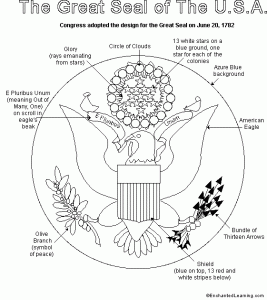Well the Forty-Niners beat the Saints in a heart-stopping final two minutes of the playoffs, and the Patriots beat the Broncos and their verbified quarterback, Tim Tebow.
Does this mean that those who pan for gold have an advantage over they who have hearts of gold? That success comes to those who place constitutional values over religious doctrine?
Maybe. But probably not. What it likely means is that the ‘Niners and Pats outplayed the Saints and Broncos when it came to controlling the pigskin and moving it efficiently down the field.
I wouldn’t bother to give this much thought—I care hardly at all about sports in general and football in particular—except that Mr. Tebow and his Rodin’s-Thinker posture of gratitude and the fad it has sparked have forced themselves into my consciousness the way that a whining child demands attention. Even a running toilet stops if you jiggle the handle, but nothing seems to halt the metamorphosis of Tebow into trope.
Perhaps I’m just sick and tired of the public practice of religion as a demonstration of moral virtue. It is not spirituality or faith in god or goddess to which I refer; it is the dogmas designed by (mostly) men, and the rules enforced by individuals whose own adherence is flawed, that gets my scapegoat.
Which brings me to the subject of the men who would be Republican presidents of the United States of America.
Collectively they provide only the faintest echo of what “Republican” meant even to the bleeding-heart-and-kneejerk-liberal, Kennedy-loving, Leftist Democrats who brought me into this world and imbued me with their politics. Even to my mother and father, most Republicans were political centrists operating further to the right than they felt they could countenance (and my mother’s mother was a registered Republican, anyway).
What conjoins this collection of antagonists into something like a pack are their Tebowesque religiosity and their blurring of the boundaries between democratic engagement in the political process and mob zealotry.
The folks they would persuade into their political sects are Americans who want god—specifically the Christian God—“returned” to government. “God,” however, was never a Founding Father, or even a Founding Consultant.
Article VI, paragraph 3 of the U.S. Constitution states, “The Senators and Representatives before mentioned, and the Members of the several State Legislatures, and all executive and judicial Officers, both of the United States and of the several States, shall be bound by Oath or Affirmation, to support this Constitution; but no religious test shall ever be required as a qualification to any office or public trust under the United States.” This means that no religious affiliation or beliefs, or the eschewing of religion, is relevant to governmental office. In reference to religion, the first amendment to the Constitution stipulates that “Congress shall make no law respecting an establishment of religion, or prohibiting the free exercise thereof…” This certainly suggests that while all American may freely express their religious affiliations and practice their religious duties, the government cannot advance some particular creed over another.
Okay, this is a sticky area.
I certainly interpret these statements the way I interpret the inalienability of the rights of “life, liberty and the pursuit of happiness” asserted in the Declaration of Independence. (Just this morning I watched a clip of Gingrich reciting those words and his emphasis was on “endowed by their creator” rather than “inalienable rights” and what follows. I also notice that he changes “inalienable” to “unalienable.”) Just as my living, my freedom and my pursuit of happiness cannot infringe on those rights as held by others—I am not free to steal, kill, or abuse, no matter how happy that makes me—religious beliefs and practices held by some cannot be imposed directly or indirectly on others and never through the agency of the government.
From this I conclude that a government shaped and guided by a single religion can never be a democracy and can never lay claim to the moral territory staked out in the U.S. Constitution.
Many governments have claimed their authority from religion. Kings ruled by Divine Right; individuals were disenfranchised, imprisoned, exiled, and executed for adherence to something other than the official religion; and punishments were exacted—and still are—based on edicts in holy texts. A government based on religious precepts is a theocracy. The most significant theocracies in today’s world are the Muslim nations that observe Sharia, or Islamic law. Sharia developed in the 10th century and includes schools of thought that range from the comparatively liberal approach of Hadith to the extreme orthodoxy of the Taliban.
But the question is: In America, do we want our lives, our business practices, our sexuality and marriages, our creative endeavors, our educational opportunities, our economic potential and more to be governed by a mindset that gelled almost two thousand years ago?
I don’t.
I want the discourse that deals with our lives, our business practices, our sexuality and marriages, our creative endeavors, our educational opportunities, and our economic potential to be shaped by facts and rational analysis, not by emotion and beliefs in supernatural forces. I want the debates our political candidates engage in to focus on documented problems, not fantasized perils. I want the private issues of faith and religion to remain private and I want the electorate and the candidates alike to focus on the public weal. To paraphrase the words of President John F. Kennedy, I would like people to think more about what they might do for this country and less about what the country should be doing for them.
And I certainly don’t want as president a man who is following with blinkered passion the precepts of a faith not embraced by all Americans. Give me, at least, a president and maybe even a congress willing and able to collect and analyze facts and engage in rational and civil discourse to find those compromises that genuinely serve the public weal.

